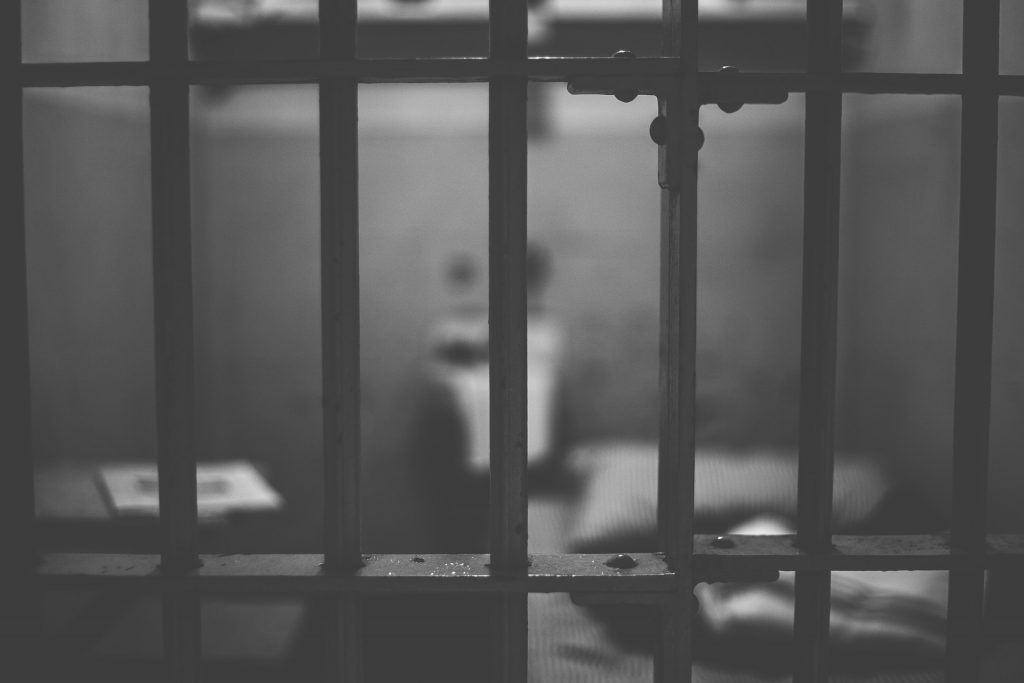Nation’s Worst Prison Gerrymandering?
Wisconsin’s a leader in counting prisoners to inflate rural areas and rob urban areas of representation.
Much of Juneau County in central Wisconsin is about as rural and sparsely populated as it gets in this state. But the county has a medium security prison in the tiny town of New Lisbon and that helps artificially inflate its population numbers when political districts are drawn.
80% of the political district drawn around New Lisbon includes prisoners who can’t vote and have homes located elsewhere, mostly in urban areas like Milwaukee. Yet the last political redistricting counts these inmates as “residents,” which massively inflates the political power of this district. It “gives 20 residents of that district the same voting power as 100 residents of any other ward,” notes a report by the nonpartisan Prison Policy Initiative (PPI), which tracks such statistics.
The New Lisbon prison helped to gerrymander Assembly District 53. “In 2011, the legislature used 5,583 incarcerated people to pad out the population of District 53,” the report notes. “Without the incarcerated populations, the district is 10% below the required size. This gives every 90 residents of the 53rd district the same influence as 100 residents of any other district in the state.”
“Prison gerrymandering violates the constitutional principle of ‘one person, one vote,’” the PPI notes. “The Supreme Court requires districts to be based on equal population in order to give each resident the same access to government.”
Prison gerrymandering not only violates the principle that “all our votes are counted equally,” notes Eileen Newcomer, Voter Education Manager for the League of Women Voters of Wisconsin, but it means that when state and federal funding is awarded by population it gives too much to Juneau County and too little to Milwaukee’s 53206 area.
The issue is a national one created by a U.S. Census Bureau policy that counts inmates as living in the district where their prison is located. The bureau has been under pressure to change the policy but refused in 2020.
Yet 13 states have passed legislation addressing this, the group notes. Most are blue states but included in the list are swing states like Nevada and Virginia and the very red state of Tennessee. In addition, “over 200 local governments across the US avoid prison gerrymandering by refusing to use Census Bureau data that counts out-of-town people incarcerated there as if they were town residents,” the group notes.
But Wisconsin remains among the many states that haven’t embraced reform. Besides Juneau County, which has the worst prison gerrymandering, other badly unrepresentative areas include Adams County, where 62% of electoral Districts 13 and 5 are incarcerated inmates, Juneau City (53% incarcerated), Waupun County (75% of District 2 is incarcerated) and Jackson County (51% of District 12 is incarcerated). Another 16 cities and counties in the state have lower levels of prison gerrymandering, the group found.
How bad in Wisconsin compared to other states? Mike Wessler, PPI Communications Director, notes that “Wisconsin has 5 of the top 20 city/county districts most distorted by prison gerrymandering in the nation. Tennessee was the only other state with distortion at that scale (also with 5 of the top 20). Since then, though, Tennessee has passed a law freeing counties to end prison gerrymandering, so we anticipate some of the most distorted districts in that state will be addressed during this redistricting cycle.”
Except that in 1981, then-Attorney General Bronson La Follette, a Democrat, issued an opinion on how the state should count prisoners for redistricting, concluding that Wisconsin must use unaltered census data to draw state legislative districts.
But La Follette’s decision seemed to leave an opening for exceptions and there are five cities and two counties in Wisconsin that avoid prison gerrymandering, the PPI found.
In a follow-up report last week, the PPI suggested that “Wisconsin’s current attorney general, Josh Kaul, can issue a new legal opinion that updates the outmoded legal reasoning from 1981 and makes it clear that local governments can address prison gerrymandering.”
Kaul has issued no reply and his office did not respond to Urban Milwaukee’s request for comment.
Jay Heck, executive director of the nonpartisan group Common Cause in Wisconsin, says Wisconsin should model itself after two of its neighboring states. “Michigan and Illinois have taken action to have incarcerated individuals counted as residents of the place where they are from, not where they are imprisoned,” he notes. “Wisconsin should do the same.”
If you think stories like this are important, become a member of Urban Milwaukee and help support real, independent journalism. Plus you get some cool added benefits.
Murphy's Law
-
Top Health Care Exec Paid $25.7 Million
 Dec 16th, 2025 by Bruce Murphy
Dec 16th, 2025 by Bruce Murphy
-
Milwaukee Mayor’s Power in Decline?
 Dec 10th, 2025 by Bruce Murphy
Dec 10th, 2025 by Bruce Murphy
-
Total Cost of Foxconn Is Rising
 Dec 8th, 2025 by Bruce Murphy
Dec 8th, 2025 by Bruce Murphy





















